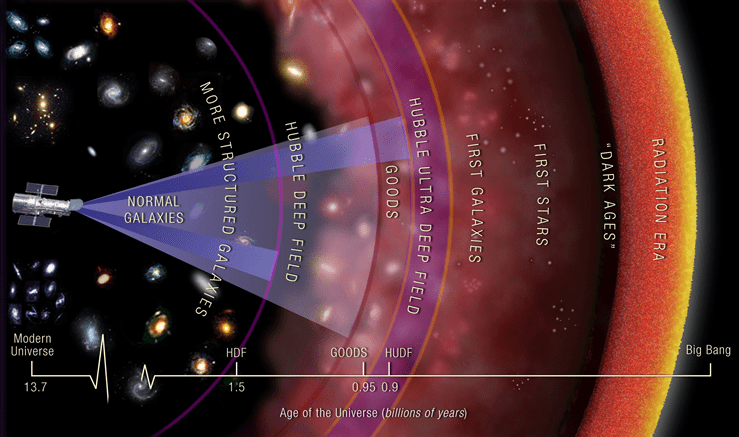Possible Preaching Themes
Possible Scientific Resources
- Jesus’ messiahship and the truth of his incarnation was not always accepted in his lifetime and was ultimately rejected when he was crucified.
- Medical testing knows the phenomena of false positives and false negatives.
- These are testing inaccuracies that wrongly indicate the presence of a disease when it is actually not there (like cancer), or wrong indicate the absence of pregnancy when it is, in fact, present.
- The truth of Jesus’ divinity is often the occasion for a kind of spiritual false negative, rejecting the truth of his divinity when it is indeed present. This was true in Jesus’ time and in our own.
- There is a well-known maxim among scientists such as micro-biologists or geneticists: “you get what you screen for.”
- This is a variation on the wisdom articulated by the famed Paleontologist, Mary Leaky, “you find what you are looking for.”
- This Christmas feast helps us again to celebrate the mystery of incarnation and helps us to clarify what we are looking for in faith and in life.
- Medical testing: false positives and false negatives
- https://manoa.hawaii.edu/exploringourfluidearth/chemical/matter/properties-matter/practices-science-false-positives-and-false-negatives
- https://www.perforce.com/blog/qac/what-are-false-positives-and-false-negatives
- https://ctu.edu/initiatives/preaching-with-the-sciences/ [online seminar with Dr. Kathleen Beavis]
- You get what you are looking for
Homily Outline Combining Resources
Homily outline: Nativity, false positives and false negatives
- Today we celebrate that God was wed with humanity in the unique event of Jesus’ birth.
- The texts and traditions are explicit about Jesus as the Christ, our savior, an event of great joy that announces his mission to deliver all of humankind.
- While today’s feast seems unequivocal in proclaiming that truth of divine revelation.
- Many today do not embrace the truth of his divinity, as they did not in his own day.
- There were many claims that the Messiah had come or was coming before Jesus was actually born.
- Israelite leaders were responsible for the spiritual health of their hearers. But their prophecies were often untrue, like a false positive.
- Or, when Jesus was born, the refusal of folks to believe it was a kind of false negative, as they were refusing to admit the life-saving incarnation of God.
- Expecting a Messiah was not a disease, and misinformation has nothing to do with pathology. Yet, the analogies of false positivity and false negativity might help us to grasp the misguidance and disbelief surrounding the nativity.
- Even in his own day accepting Jesus’ divinity was challenging:
- The shepherds in Luke’s gospel seemed troubled, maybe because they too were unsure if the news of the Messiah’s birth was real.
- Later in Luke, when Jesus is a boy, his hearers wonder “Is this not Joseph’s Son?” (Luke 4:22).
- Even the adult Jesus asks his disciples who the crowds are saying that he is (Luke 9:18-20).
- Jesus did not fulfill many people’s expectations.
- Only by believing the good news of the angel, the surrounding and shining glory of the Lord, and the reality of Jesus’ manger birth, could the shepherds and anyone else be saved.
- Recognizing the presence of God is unsettling.
- The savior of the world was born as a migrant child in a barn to unwed and teenage parents. Joseph was not even the biological father of Jesus.
- The realness of the nativity outshines the tinsel with which we adorn Christmas.
- The Messiah is utterly human and absolutely God and the salvation he brings does not shy away from the complexities of life.
- Jesus’ ministry plunged him into those complexities, and his care for the marginalized and poor was NOT a false positive – he showed himself to be the genuine, though unlikely Messiah.
- Jesus’ birth brought good news that glorified God and brought peace to those whom God favors.
- May we live, speak, and act within ourselves and outwardly toward others as if we genuinely believed it.
- So that when our neighbors come to Church seeking God, they will not see a ‘false positive,’ but worship that exemplifies the love, mercy, and grace of God.
And when they see Christians in action in the world, they will similarly see the genuine article, as was positively incarnated and revealed in the life and ministry of Jesus.
Related Homily Outlines
Couldn’t find what you’re looking for?
Try searching with another filter

Preaching with Sciences

Edward Foley, Capuchin
Duns Scotus Professor Emeritus of Spirituality
Professor of Liturgy and Music (retired)
Catholic Theological Union
Vice-Postulator, Cause of Blessed Solanus







